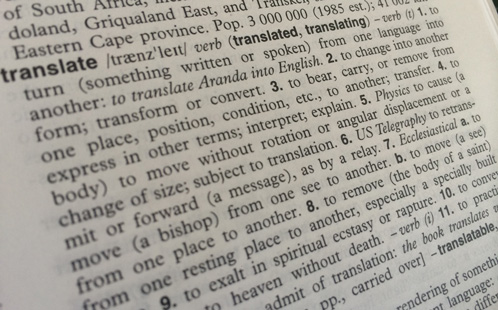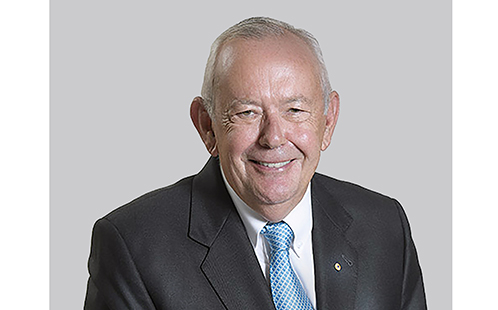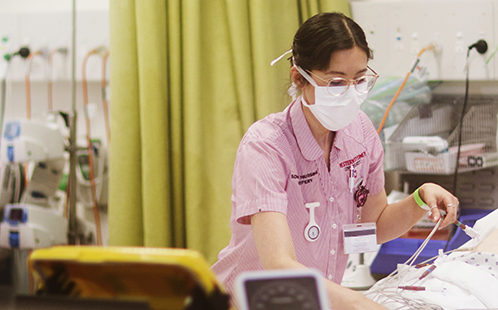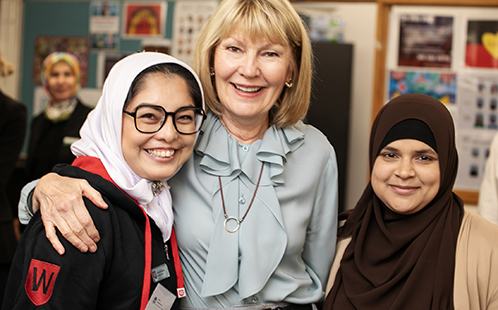Community translation key for multicultural Australia

An international conference at the University of Western Sydney will discuss how to build the country's already impressive track record in providing community translation services to give non-English speakers the chance to fully participate in Australian society.
Since the 1970s, Australia has helped pioneer new community translation and interpreting services as well as an accreditation system to ensure quality. Community translation is a sub-field of translation covering written language services as opposed to face to face interpreting. The Conference Organiser, Dr Mustapha Taibi, says it is "translation of different types of texts intended to facilitate communication between public services and people who do not have a good command of mainstream language."
Community translation is crucial for non- English speaking migrants settling in Australia as they are often in need of information about government services and their new environment, yet may be unable to communicate effectively.
To discuss the best ways to help non-native speakers receive important information, UWS is hosting the International Conference on Community Translation at the UWS Parramatta campus, 11 to 13 September.
The conference organiser and Head of the UWS International Community Translation Research Group, Dr Mustapha Taibi, says there has been a lot of focus on literary, legal and technical translation, but community translation is still neglected.
"Nearly a quarter of all Australian households speak a language other than English at home, and many can't access information in English," says Dr Taibi.
"Community translation plays a key role for those who can't speak English by giving them access to government services and documents in a language they can understand. This could include information about the services of local council, general healthcare advice, safety tips, environment awareness, or information on where and how to vote."
"This conference is the first of its kind, and will link our teaching and research strengths to deliver recommendations to make a real impact on minority language communities."
The conference will include an address by the Honorable Concetta Fierravanti-Wells, Parliamentary Secretary to the Minister for Social Services, and four leading international keynote speakers, Professor Dorothy Kelly (Granada University, Spain), Professor Alan Melby (Brigham Young University, USA; American Translators Association), Adjunct Associate Professor Uldis Ozolins (University of Western Sydney) and Dr Harold Lesch (Stellenbosch University, South Africa).
The conference will also include a presentation by John Beever, the CEO of the National Accreditation Authority for Translators and Interpreters.
Other speakers at the conference include:
- Elisabet Tiselius (Stockholm University) Translation into immigrant languages, although regularly present, is not covered by national strategies or action plans. In fact, many local authorities rely on Google Translate in order to convey local information to groups with little proficiency in the majority language
- Zalfa Rihani (United Arab Emirates University) Lack of quality assurance in community translation hinders the integration of immigrants. Quality assurance in community translation can be achieved through genuine understanding of the immigrant's assumptions about his identity, language and culture.
- Eva Melhem (Western Sydney Local Health District; University of Western Sydney) The availability of culturally relevant translated resources can assist health services engage and communicate with culturally and linguistically diverse communities, improving their health literacy and facilitating better health outcomes
Ends
8 September 2014
Latest News

Western Sydney University receives transformational donation to support LGBTIQA+ community
Western Sydney University has welcomed a philanthropic donation from The Brennan Lynch Foundation.

Western Sydney University ranks among world’s best for 23 subjects
The University has been named as one of the world’s top universities for the study of 23 subjects in the latest edition of the QS World University Rankings by Subject, including being ranked in the top 50 for Nursing.

Western Sydney University receives landmark $7.9 million philanthropic gift from Harvey Norman to launch leadership academy, empowering young women in Western Sydney
Western has welcomed a landmark donation to establish the Harvey Norman® Young Women’s Leadership Academy Led by Katie Page.
Mobile options:

